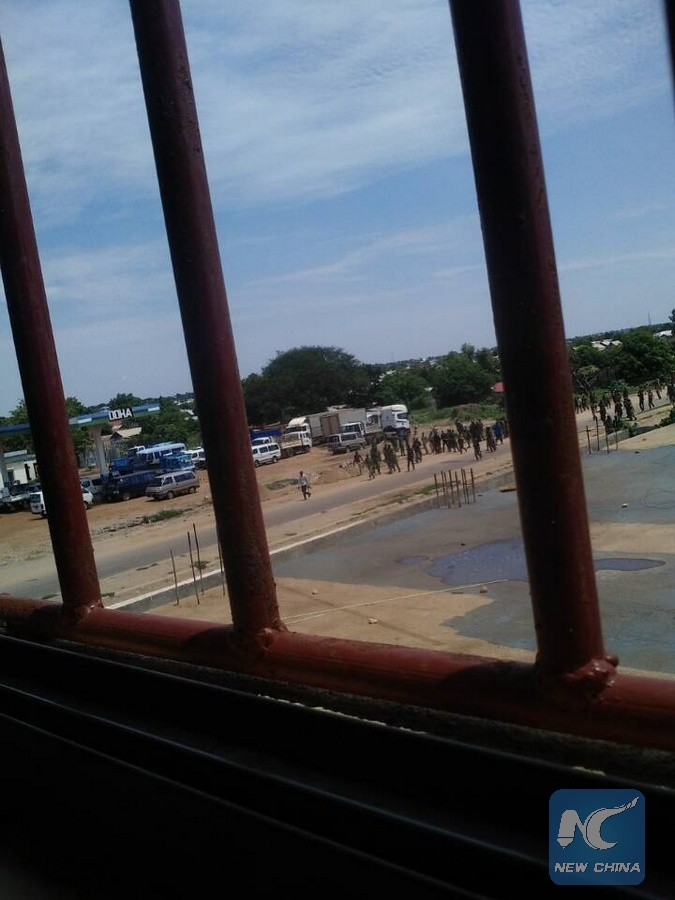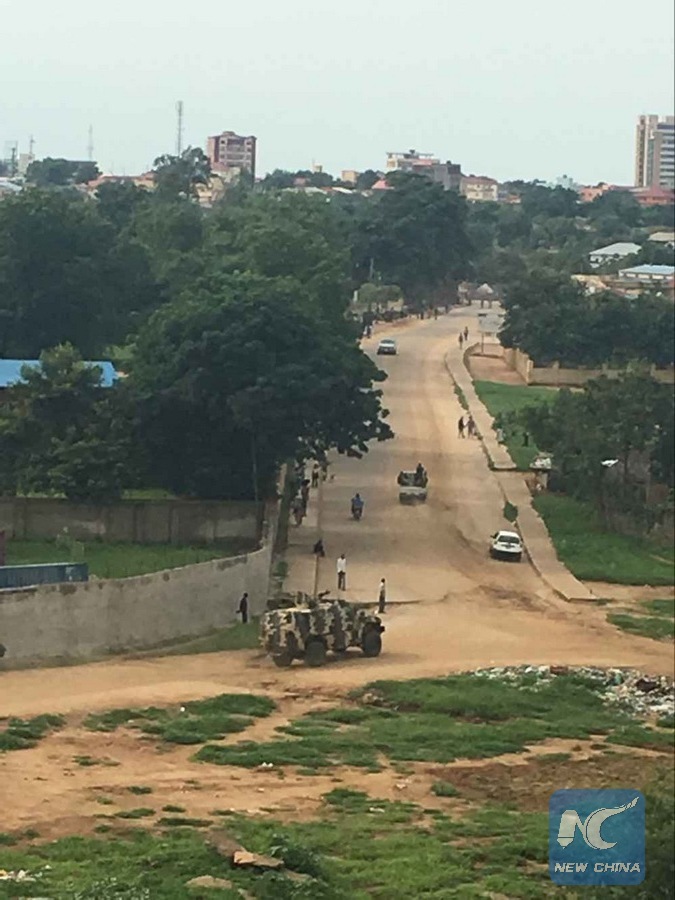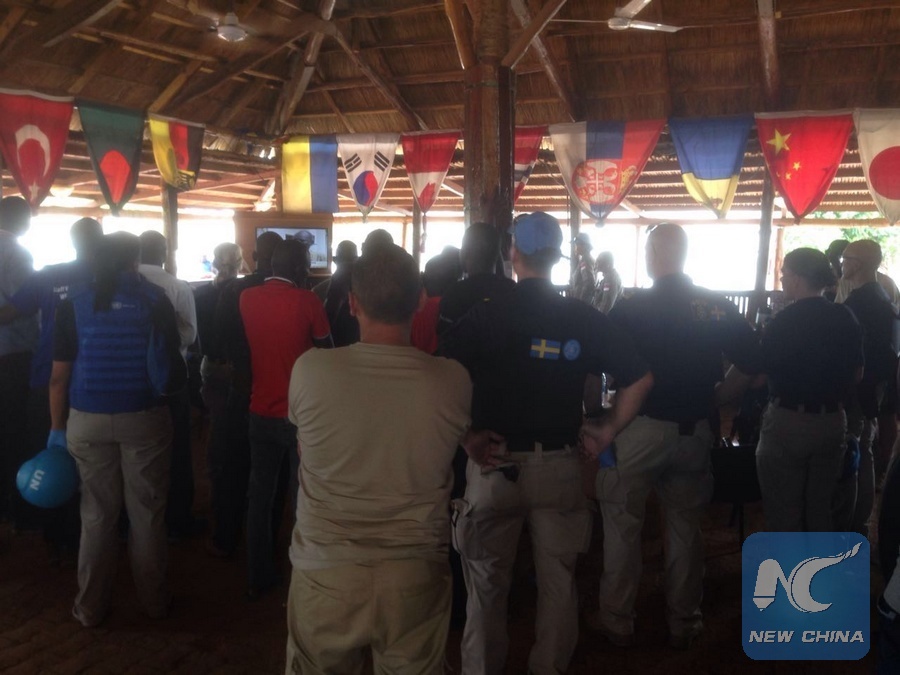
South Sudanese troops were seen on the street of capital Juba on July 10, 2016. (Xinhua)
JUBA, July 11 (Xinhua) -- Heavy fighting erupted again on Monday in South Sudan's capital Juba between government troops of President Salva Kiir and forces loyal to Vice President Riek Machar.
Witnesses told Xinhua that heavy artillery shelling and mortars were heard on Monday morning in parts of the capital city including Hai Cinema, Jebel, Gudele, Tomping and the airport.
"As we are talking now, there are heavy explosions all over Juba. The rival factions are using heavy artillery and mortars to attack each other," a witness told Xinhua by phone.
 A South Sudanese military armoured vehicle was seen on the street of capital Juba on July 10, 2016. (Xinhua)
A South Sudanese military armoured vehicle was seen on the street of capital Juba on July 10, 2016. (Xinhua)
Another witness said he saw civilians fleeing their homes as mortars, grenades, and heavy ground assault weaponry were used by both sides.
The UN mission in South Sudan (UNMISS) reported heavy fighting in Juba, including in areas close to its compounds in Jebel and Tomping. It said more than 1,000 internally displaced people had fled a UN Protection of Civilian site to the UNMISS compound in Jebel.
Both UNMISS compounds in Juba sustained impacts from small arms and heavy weapons fire, the UN mission said.

International aid personnel were seen at the Juba International Airport on July 10, 2016. (Xinhua)
South Sudan's Health Ministry says at least 271 people were killed in clashes between the rival factions on Friday in Juba. Fighting resumed on Sunday in the capital city.
The exact number of those killed in fighting since Sunday is not known, but an UN source says two Chinese peacekeepers have been killed after the armoured vehicle they were travelling in on duty was hit by a mortar shell on Sunday.
The violence has raised fears that the war-torn country could descend into war again.
President Kiir and former rebel leader Machar have fought a civil war which broke out in December 2013 and left tens of thousands dead.
A peace deal signed by the two men last August under UN pressure led to the formation of a national government in April with Machar returning to his old post.

